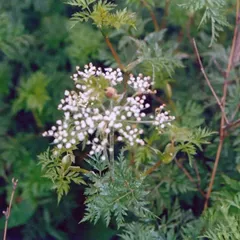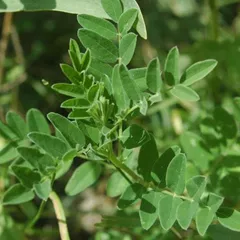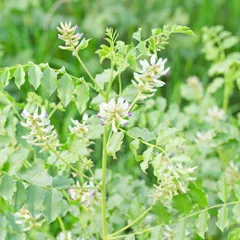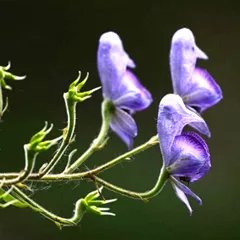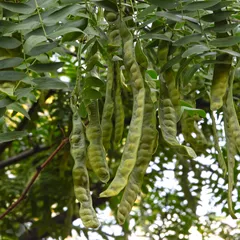Chronic rhinitis according to Chinese Medicine
The information provided here is not a replacement for a doctor. You shouldn't use it for the purpose of self-diagnosing or self-medicating but rather so you can have a more informed discussion with a professional TCM practitioner.
Chronic rhinitis factsheet
Possible causes and remedies:
Spleen and Stomach Qi Deficiency
Symptoms: Deafness Tinnitus Dizziness and seven other symptoms
Recommended formula: Bu Zhong Yi Qi Tang
Symptoms: Aversion to cold Spontaneous sweating Thirst for warm drinks and one other symptom
Recommended formula: Bu Zhong Yi Qi Tang
In Chinese Medicine, chronic rhinitis can be associated with three so-called "patterns of disharmony". Chinese Medicine sees the body as a system, not a sum of isolated parts. A "pattern" is when the system's harmony is disrupted. It is not equivalent to the Western concept of "disease", as a matter of fact here chronic rhinitis can be caused by three different patterns.
To understand whether someone's chronic rhinitis might be caused by a given pattern, one needs to look for signs and symptoms associated with the pattern beyond what one might typically experience from chronic rhinitis alone. For instance when chronic rhinitis is caused by the pattern Spleen and Stomach Qi Deficiency, patients also experience symptoms such as dizziness, unsteadiness, blurred vision and deafness. Similarly, patients with Spleen and Stomach Qi Deficiency typically exhibit weak (Ruo) pulses as well as a pale tongue.
We've listed below a description of the three patterns associated with chronic rhinitis so that you can start to get an understanding of the various possibilities according to Chinese Medicine.
Once identified, patterns are often treated using herbal formulas. Drinking herbal infusions is the most common remedy in Chinese Medicine, together with acupuncture. Here we detail below seven formulas that can help treat the various patterns associated with chronic rhinitis, depending on which pattern fits your profile.
The three "patterns of disharmony" associated with chronic rhinitis
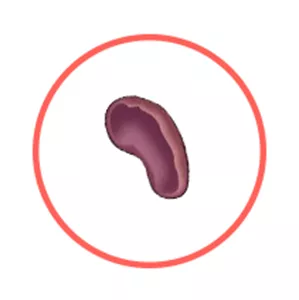
The Spleen is a so-called "Zang" Organ. Learn more about the Spleen in Chinese Medicine
Spleen and Stomach Qi Deficiency
Pulse type(s): Weak (Ruo)
Tongue color: Pale
Recommended herbal formula: Bu Zhong Yi Qi Tang
Symptoms: Deafness Tinnitus Dizziness Weak voice Unsteadiness Loose stools Poor appetite Blurred vision Pale complexion Shortness of breath
Chronic rhinitis might be due to Spleen and Stomach Qi Deficiency if the condition is paired with typical pattern symptoms such as dizziness, unsteadiness, blurred vision and deafness. Similarly, patients with Spleen and Stomach Qi Deficiency typically exhibit weak (Ruo) pulses as well as a pale tongue.
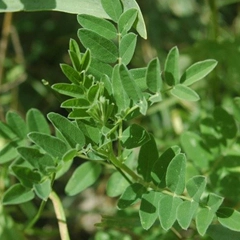
Milkvetch Roots (Huang Qi) is the key herb for Bu Zhong Yi Qi Tang, a formula used for Qi Deficiency Fever
Qi Deficiency Fever
Pulse type(s): Empty (Xu)
Tongue color: Pale
Tongue shape: Swollen
Recommended herbal formula: Bu Zhong Yi Qi Tang
Symptoms: Aversion to cold Spontaneous sweating Thirst for warm drinks Intermittent fever that worsens upon exertion
Chronic rhinitis might be due to Qi Deficiency Fever if the condition is paired with typical pattern symptoms such as intermittent fever that worsens upon exertion, spontaneous sweating, aversion to cold and thirst for warm drinks. Similarly, patients with Qi Deficiency Fever typically exhibit empty (Xu) pulses as well as a pale tongue.

The Kidneys is a so-called "Zang" Organ. Learn more about the Kidneys in Chinese Medicine
Kidney Yang Deficiency
Pulse type(s): Empty (Xu), Weak (Ruo)
Tongue coating: Thin white coating
Tongue color: Pale
Tongue shape: Swollen
Recommended herbal formula: Shen Qi Wan
Symptoms: Incontinence Lower back pain Urinary difficulty Lower abdominal pressure Weakness of the lower extremities Cold sensation in the lower half of the body
Chronic rhinitis might be due to Kidney Yang Deficiency if the condition is paired with typical pattern symptoms such as lower back pain, weakness of the lower extremities, cold sensation in the lower half of the body and lower abdominal pressure. Similarly, patients with Kidney Yang Deficiency typically exhibit empty (Xu) or weak (Ruo) pulses as well as a pale tongue with thin white coating.
The seven herbal formulas that might help with chronic rhinitis
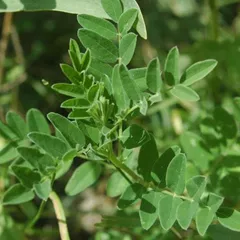
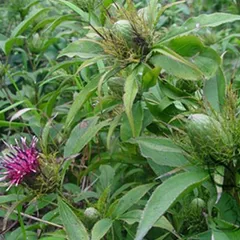
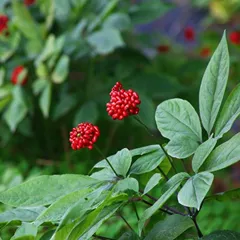
The top herbs in Bu Zhong Yi Qi Tang are Milkvetch Roots (Huang Qi), Atractylodes Rhizomes (Bai Zhu) and Ginseng (Ren Shen)
Bu Zhong Yi Qi Tang
Source date: 1247
Number of ingredients: 10 herbs
Key actions: Tonifies Qi of the Spleen and Stomach (Middle Burner). Raises the Yang. Detoxifies. Lifts what has sunken.
Why might Bu Zhong Yi Qi Tang help with chronic rhinitis?
Because it is a formula often recommended to help with the patterns Spleen and Stomach Qi Deficiency and Qi Deficiency Fever which are sometimes associated with chronic rhinitis. If any of these patterns look like something you might suffer from, this formula might help (although please seek confirmation with a professional practitioner beforehand).
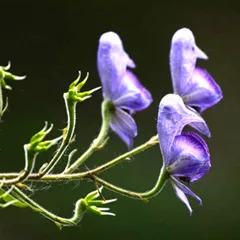
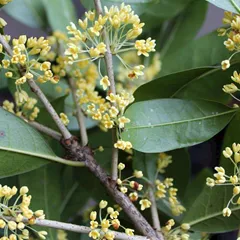
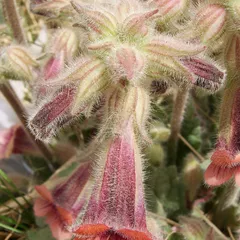
The top herbs in Shen Qi Wan are Prepared Aconite (Zhi Fu Zi), Cinnamon Twigs (Gui Zhi) and Prepared Rehmannia (Shu Di huang)
Shen Qi Wan
Why might Shen Qi Wan help with chronic rhinitis?
Because it is a formula often recommended to help treat Kidney Yang Deficiency, a pattern sometimes associated with chronic rhinitis. If it looks like you might suffer from Kidney Yang Deficiency, this formula might help (although please seek confirmation with a professional practitioner beforehand).
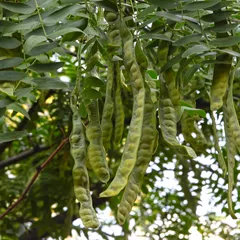
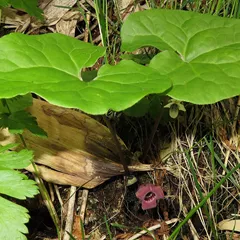

The top herbs in Tong Guan San are Chinese Honeylocust Abnormal Fruits (Zhu Ya Zao) and Wild Ginger (Xi Xin)
Tong Guan San
Source date: 650 AD
Number of ingredients: 2 herbs
Key actions: Unblocks the jaw. Opens the sensory orifices.
Why might Tong Guan San help with chronic rhinitis?
Because it is a formula often recommended to help treat , a pattern sometimes associated with chronic rhinitis. If it looks like you might suffer from , this formula might help (although please seek confirmation with a professional practitioner beforehand).
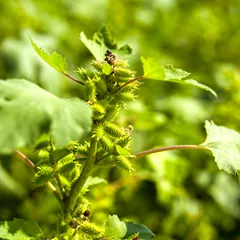

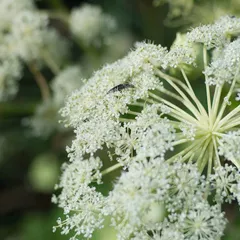
The top herbs in Cang Er Zi San are Cocklebur Fruits (Cang Er Zi ), Biond’S Magnolia Flowers (Xin Yi Hua) and Angelica Roots (Bai Zhi)
Cang Er Zi San
Source date: 1253
Number of ingredients: 5 herbs
Key actions: Disperses Wind. Relieves pain. Unblocks the nose.
Why might Cang Er Zi San help with chronic rhinitis?
Because it is a formula often recommended to help treat , a pattern sometimes associated with chronic rhinitis. If it looks like you might suffer from , this formula might help (although please seek confirmation with a professional practitioner beforehand).
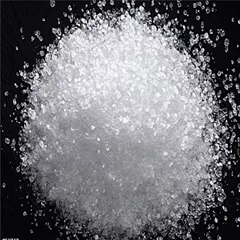
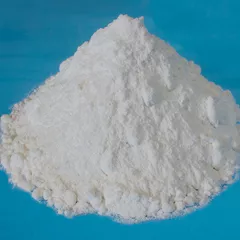
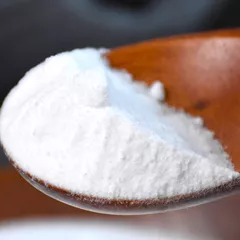
The top herbs in Bing Peng San are Borneol (Bing Pian), Borax (Peng Sha) and Exsiccated Sodium Sulfate (Xuan Ming Fen)
Bing Peng San
Source date: 1617 AD
Number of ingredients: 4 herbs
Key actions: Clears Toxic-Heat. Dispels putrescence. Reduces swellings and relieves pain.
Why might Bing Peng San help with chronic rhinitis?
Because it is a formula often recommended to help treat , a pattern sometimes associated with chronic rhinitis. If it looks like you might suffer from , this formula might help (although please seek confirmation with a professional practitioner beforehand).
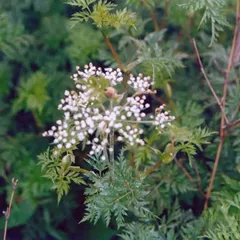

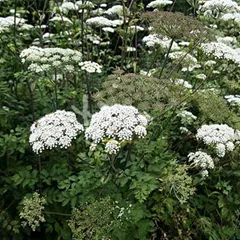
The top herbs in Chuan Xiong Cha Tiao San are Szechuan Lovage Roots (Chuan Xiong), Angelica Roots (Bai Zhi) and Notopterygium Roots (Qiang Huo)
Chuan Xiong Cha Tiao San
Why might Chuan Xiong Cha Tiao San help with chronic rhinitis?
Because it is a formula often recommended to help treat , a pattern sometimes associated with chronic rhinitis. If it looks like you might suffer from , this formula might help (although please seek confirmation with a professional practitioner beforehand).

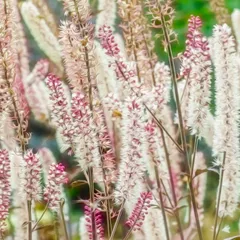
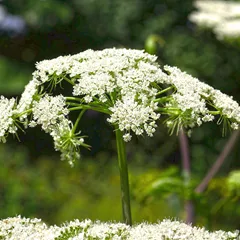
The top herbs in Xin Yi San are Biond’S Magnolia Flowers (Xin Yi Hua), Bugbane Rhizomes (Sheng Ma) and Chinese Lovage Roots (Gao Ben)
Xin Yi San
Source date: 1253 AD
Number of ingredients: 9 herbs
Key actions: Disperses Wind-Cold. Unblocks the nasal passages.
Why might Xin Yi San help with chronic rhinitis?
Because it is a formula often recommended to help treat , a pattern sometimes associated with chronic rhinitis. If it looks like you might suffer from , this formula might help (although please seek confirmation with a professional practitioner beforehand).
Symptoms related to chronic rhinitis
Dizziness Unsteadiness Blurred vision Deafness Tinnitus Shortness of breath Weak voice Pale complexion Poor appetite Loose stools


